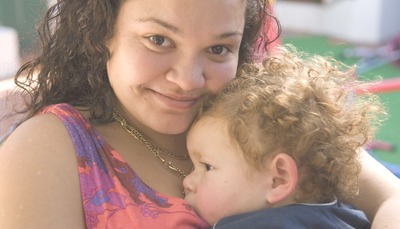Family Time –
It’s about Relationships
Information to help you understand ways you can connect with your child, including common questions asked by parents and family.
“A supervised visit at a park is better than a supervised visit in a hot room, with toys that are broken… feeling under the microscope” (Parent)
We use the term ‘family time’, sometimes ‘family visit’, to refer to what is often called ‘contact’ (the term in the Act).
We believe Family Time is more than seeing your child briefly, that it should happen as often as possible, and it must always be safe for your child and support their wellbeing.
Children and young people need to spend regular time with parents and family throughout their time in care. It should always only be if it is safe to do so. Many parents say they feel unsure about family time and visits with their children, and many find family time very distressing because there can be challenges during their time together and it is hard to say goodbye.
Family time is critical for children and young people to develop their identities and relationships, so it requires more attention and time.

If you are struggling to make your time with your kids valuable and enjoyable, ask the agency or DCJ for practical support. For example, many parents find it hard to pay for activities and transport to do things with their kids and the agency/DCJ should help out.
WHAT IS IMPORTANT DURING FAMILY TIME?
Family Time is really important for you to connect with and keep building your relationship with your children while they are in care. There are a number of things that you can do during Family Time to help your child’s wellbeing and your relationship with them (see below). As part of assessment of your parenting, DCJ and agencies use Six Dimensions of Quality Family Time, especially when parents and families are working towards restoration. The dimensions are a helpful guide for thinking about what’s important when connecting with your child.
*If you take photos or videos remember that Section 105 of the Children and Young Persons (Care and Protection) Act 1998 in New South Wales may stop the publishing of information about your child on social media or in other ways. This includes photos and videos. Ask the caseworker about this if you feel it is important to publish photos and videos because special permission might be needed.

Do you have a question?
If you require some additional direction or support, feel free to send us an email.